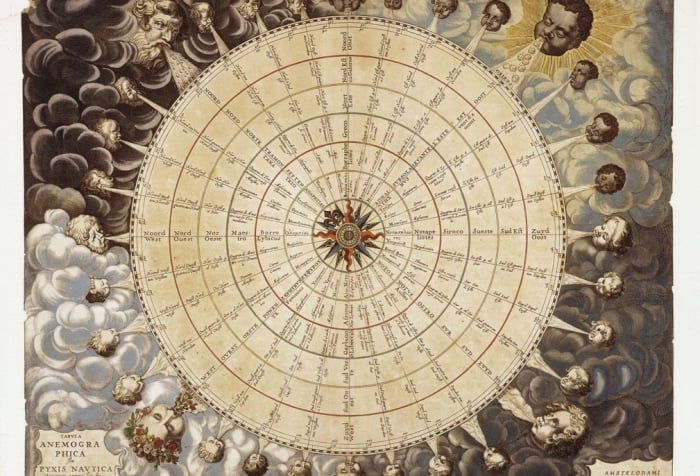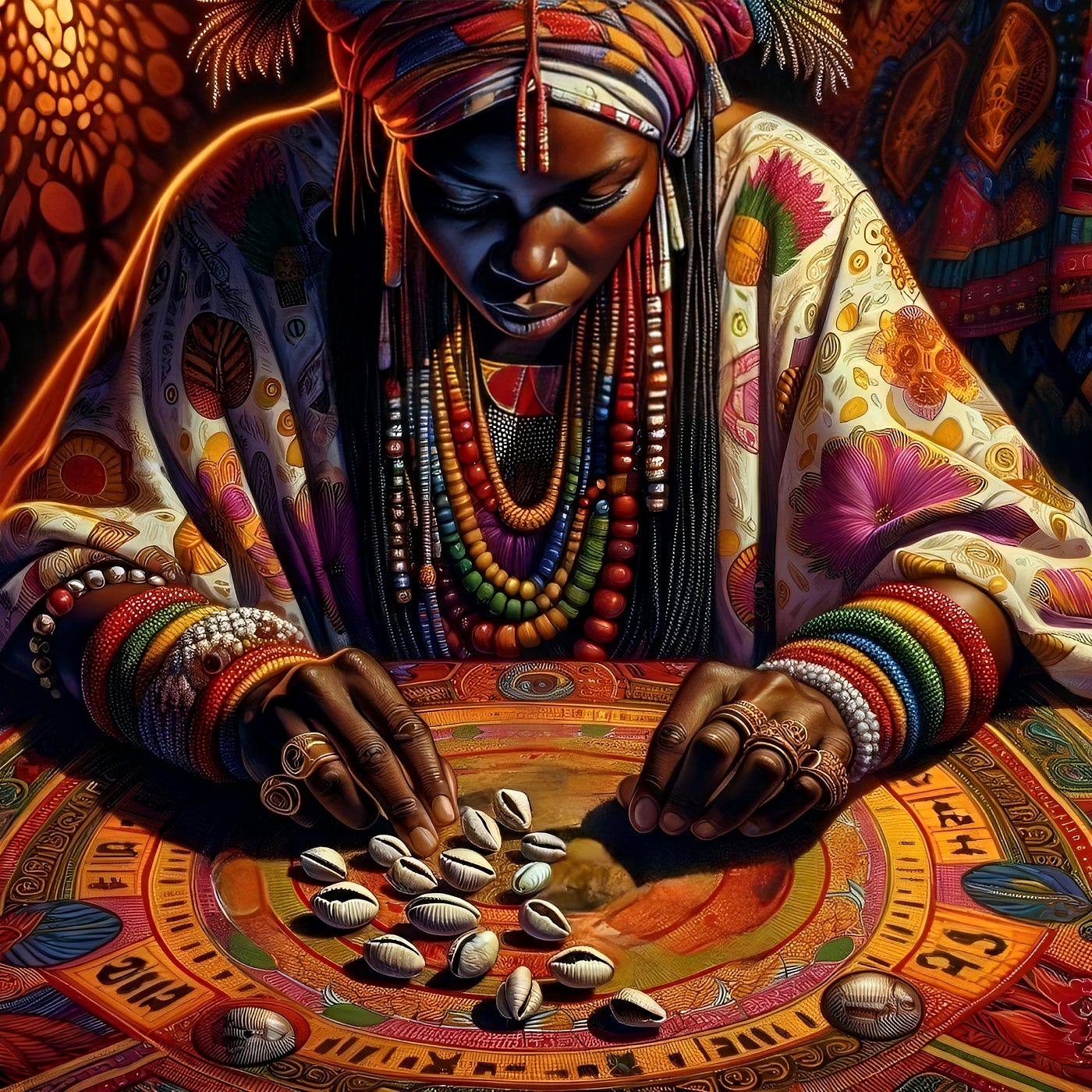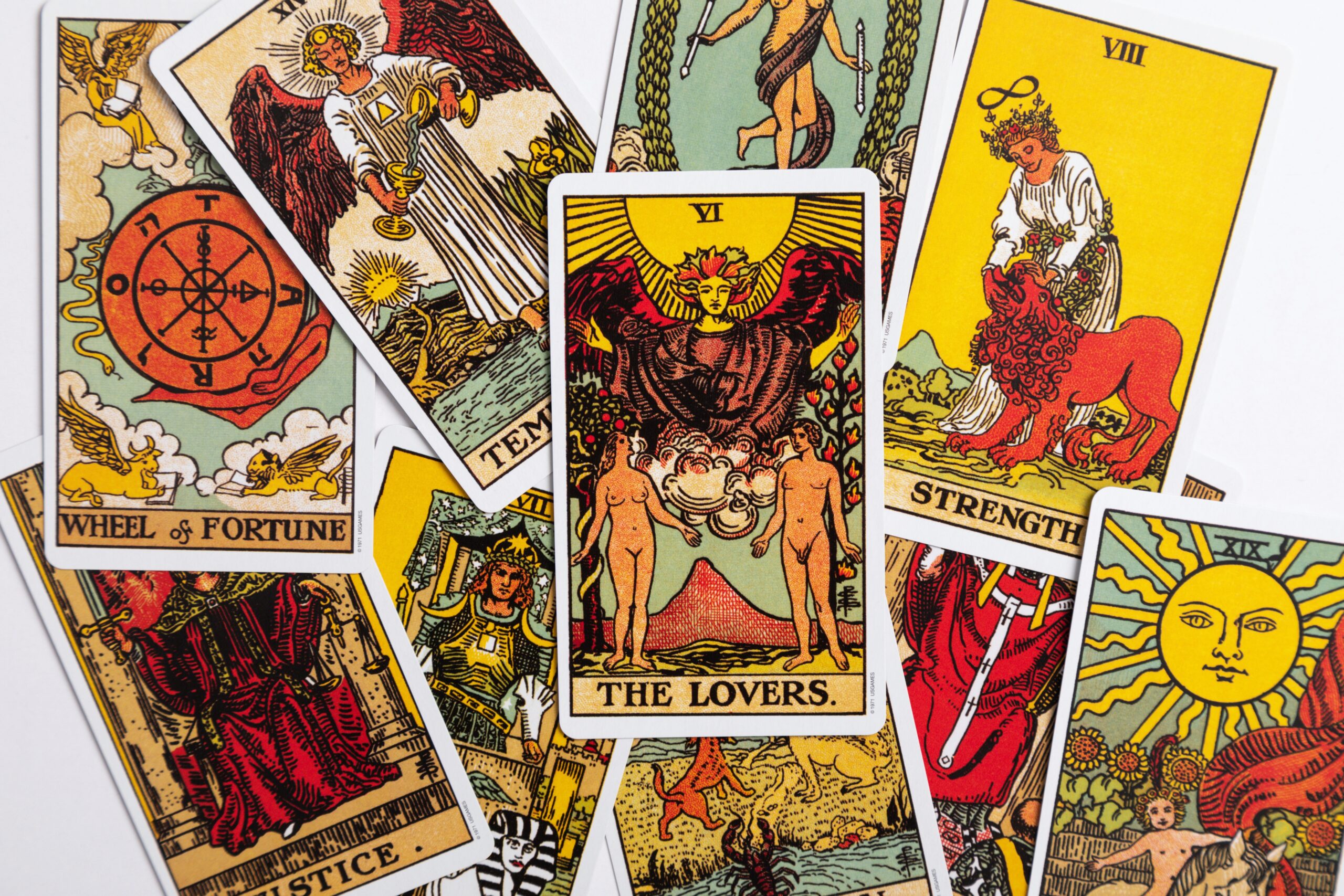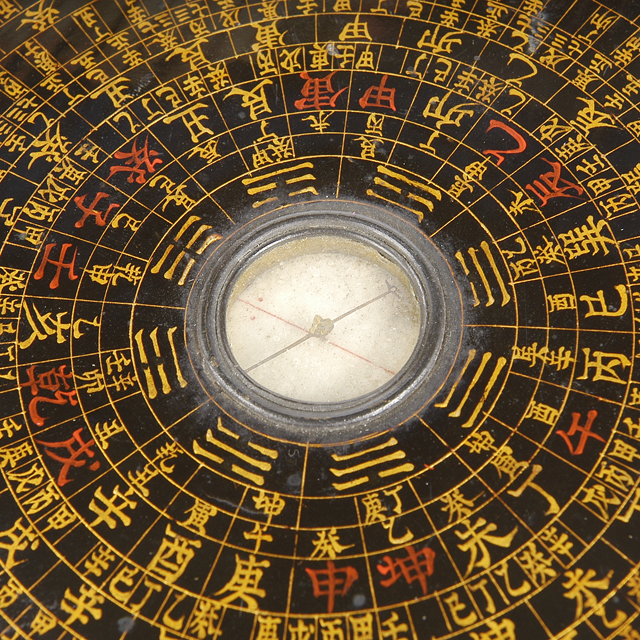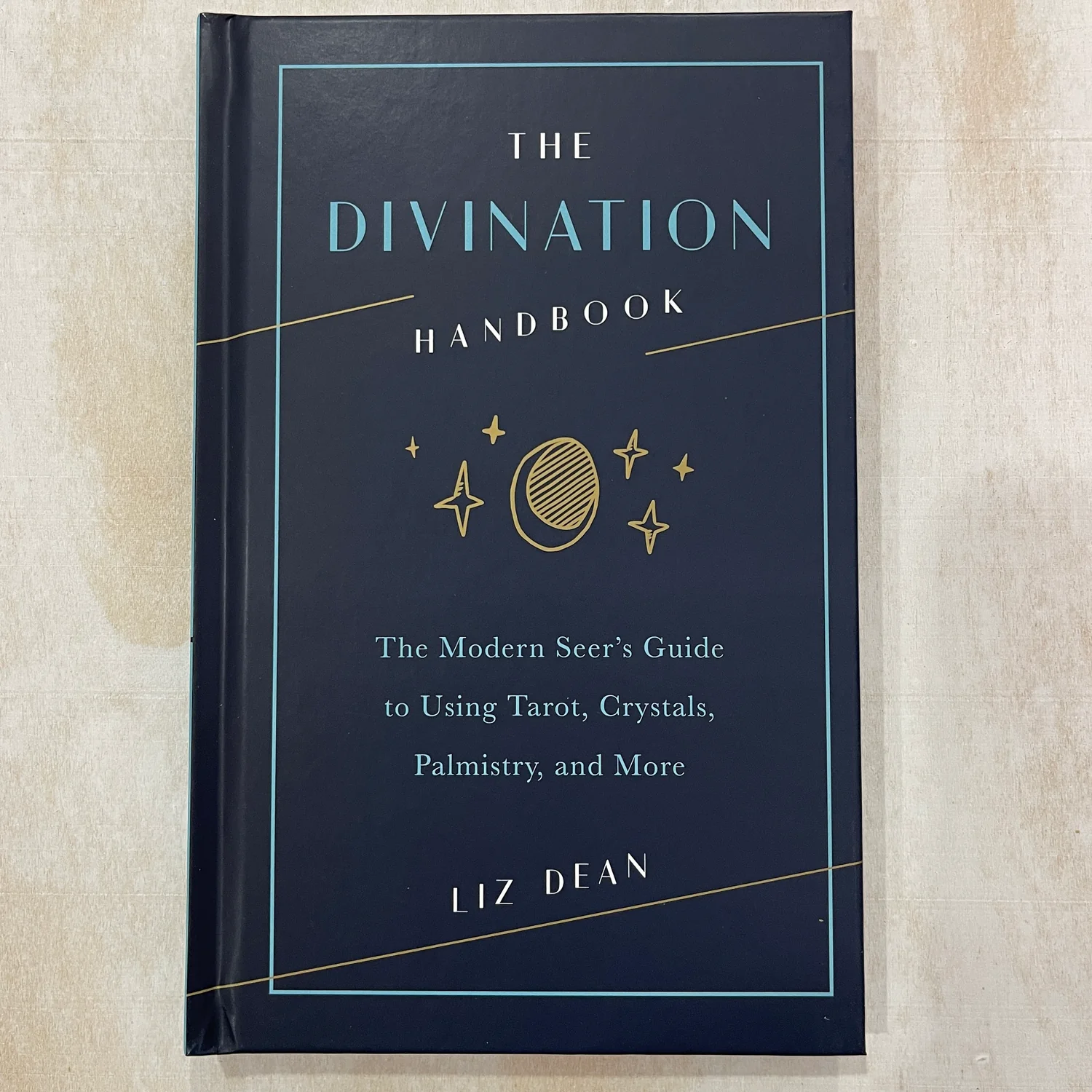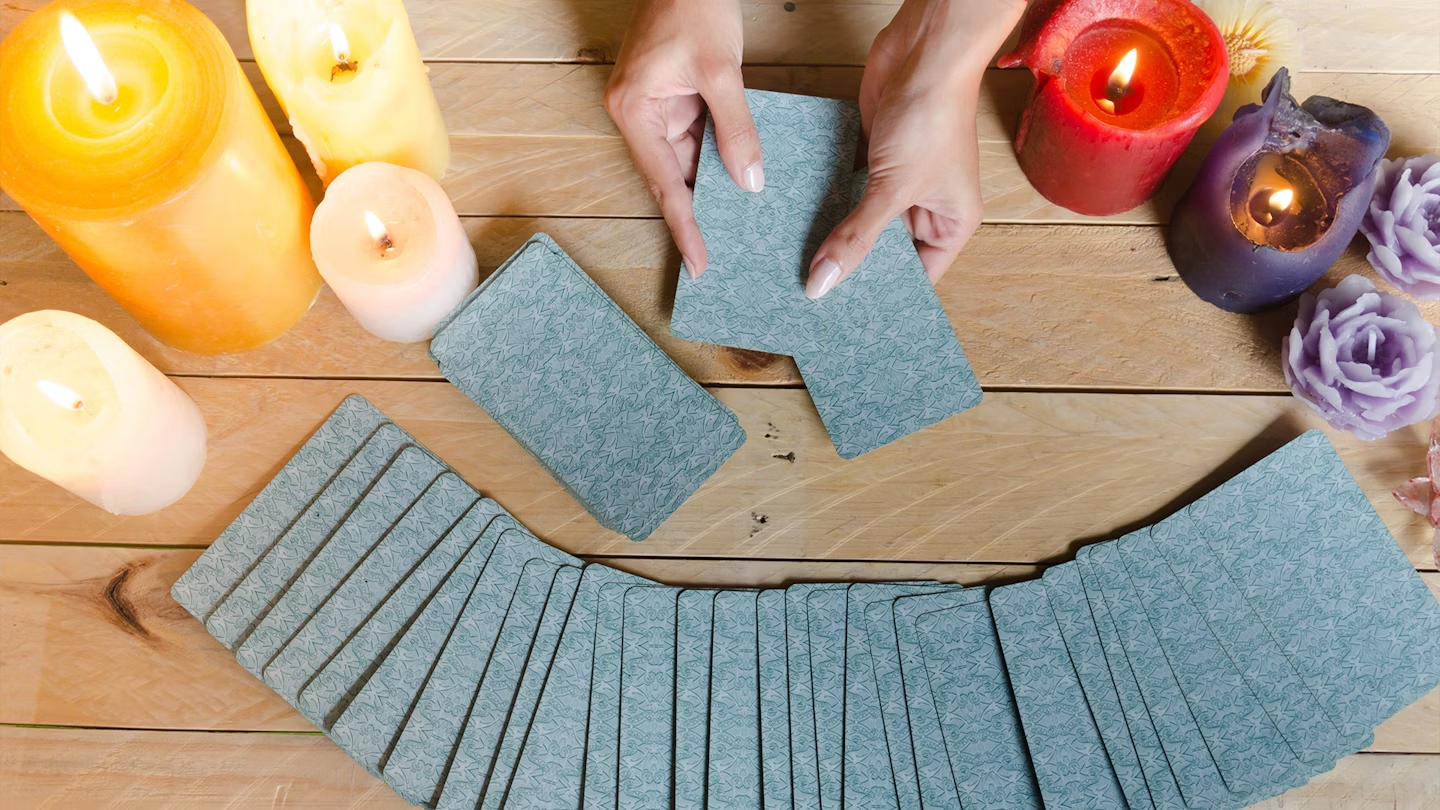The Art Of Divination
In this exploration, we delve into the fascinating realm of divination, examining its origins, diverse methods, and the enduring allure that continues to captivate practitioners worldwide.
Author:Matteo CaravetaReviewer:Evelyn AdamsJan 10, 202440.2K Shares875.5K Views
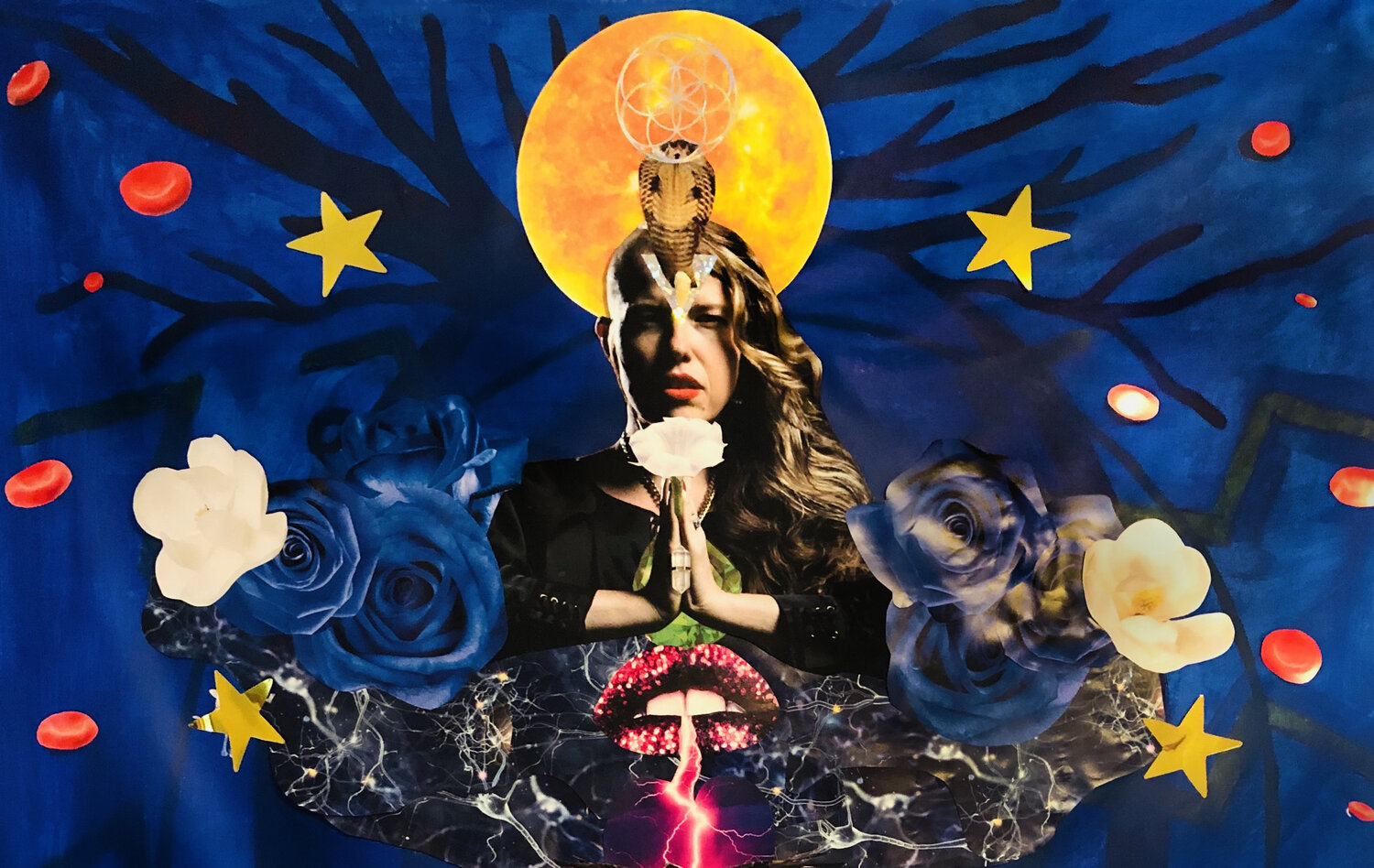
Divination, the age-old practice of seeking guidance and insight from the mystical forces that surround us, has been an integral part of human history and culture. From ancient civilizations to modern societies, individuals have turned to various divination techniques to unravel the mysteries of the future, gain self-awareness, and navigate the complexities of life. In this exploration, we delve into the fascinating realm of divination, examining its origins, diverse methods, and the enduring allure that continues to captivate practitioners worldwide.
Unveiling The Origins - The Roots Of Divination In Ancient Civilizations
The origins of divination can be traced to the cradle of ancient civilizations, where the pursuit of understanding the mysteries of life and the cosmos led to the development of profound and mystical practices. Mesopotamia, Egypt, and China stand as the fertile grounds where priests and seers were not only respected but revered for their purported ability to interpret signsand messages from the divine realms.
Mesopotamia - Cradle Of Divination Wisdom
In Mesopotamia, the land between the Tigris and Euphrates rivers, divination took root as a sacred art. The ancient Mesopotamians, with their rich pantheon of deities, believed that the divine communicated through various signs and symbols in the natural world. Priests, equipped with an intricate knowledge of these signs, engaged in the casting of lots – a practice where marked objects were randomly drawn to reveal divine messages. This casting of lots laid the groundwork for future divinationmethods, emphasizing the interconnectedness of the seen and unseen worlds.
Egypt - Mystical Practices Along The Nile
In the land of the pharaohs, divination played a central role in religious and royal ceremonies. Egyptian priests, skilled in the arts of observation and interpretation, closely monitored celestial movements, studied the flight patterns of birds, and examined the entrails of sacrificial animals. Hieroglyphs and papyri from ancient Egypt reveal the meticulous recording of these observations, highlighting the significance of divination in guiding both personal and political decisions. The practice became an integral part of the Egyptian worldview, a means of tapping into the cosmic forces that shaped their lives.
China - Harmonizing With The Tao
In ancient China, divination was deeply intertwined with philosophical and spiritual traditions. The Chinese, guided by the principles of Taoism and Confucianism, sought harmony with the natural order. The I Ching, or Book of Changes, emerged as a revered divination text. Based on the principles of yin and yang, the I Ching utilized hexagrams formed by the combination of solid and broken lines, providing a complex yet insightful system for divining the flow of cosmic energy. The ancient Chinese believed that understanding these patterns allowed one to align with the Tao, the fundamental force governing the universe.
Common Practices - Casting Lots, Celestial Observations, And Nature's Wisdom
Across these ancient civilizations, certain practices were shared, contributing to the foundational tapestry of divination. The casting of lots, involving the random selection of marked items, served as a means to communicate with the divine. Celestial observations, whether tracking the movement of stars or interpreting celestial omens, were integral to divinatory practices. Additionally, the careful study of natural phenomena, such as the flight of birds or the rustling of leaves, provided valuable insights into the cosmic dance between the earthly and spiritual realms.
Diverse Divination Methods - A Journey Into Symbolic Realms
In the vast tapestry of divination, practitioners have woven intricate threads of symbolism and intuition, creating a diverse array of methods to seek guidance and insight. Let's embark on a journey into some of the most captivating divination practices that have stood the test of time.
Tarot Cards - A Deck Of Symbolic Wisdom
The Tarot, renowned for its 78-card deck, stands as an enduring and treasured instrument for divination. Each card, adorned with archetypal imagery, functions as a gateway to the collective unconscious, unveiling profound dimensions of the human experience. Engaging in Tarot readings, where cards are drawn and interpreted, unfolds a narrative that intimately resonates with the seeker's life journey. From the enigmatic Fool to the transformative Death card, the Tarot weaves a symbolic tapestry that beckons introspection, offering insights into the past, present, and future.
Develop your understanding of the Tarot's symbolic languageand uncover the profound wisdom it holds for self-discovery and spiritual growth.
In the hands of skilled practitioners, the Tarot transcends mere fortune-telling; it becomes a powerful tool for delving into the recesses of the soul. The symbolic richness of each card serves as a mirror reflecting the complexities of human existence, providing a lens through which individuals can gain clarity, wisdom, and a deeper connection with themselves and the world around them.
Astrology - Navigating Life's Celestial Map
Astrology, often referred to as the language of the stars, explores the profound influence of celestial bodies on human affairs. By meticulously examining the positions of planets and stars at the time of one's birth, astrologers craft personalized birth charts or horoscopes. This celestial map becomes a guide, providing valuable insights into personality traits, potential life events, and avenues for personal growth. The intricate dance of planets mirrors the intricate dance of life, unveiling cosmic patterns that shape individual destinies.
Runes - The Language Of The Ancient Norse
Rooted in the ancient traditions of the Norse and Germanic peoples, the runic alphabet serves as a divination tool known as runes. Each runic symbol carries a unique and profound meaning, steeped in the rich mythology of the Norse culture. Practitioners draw or cast runes to seek answers or guidance, tapping into the intuitive connection between the seeker and the energies embodied by each rune. Whether carved into wood or etched onto stones, the runes offer a direct line to ancient wisdom, bridging the gap between the earthly and the ethereal.
Crystal Ball Gazing - Scrying Into The Unknown
Delving into the mystique of scrying, crystal ball gazing captures the imagination and transcends cultural boundaries. In this practice, practitioners focus their gaze on a reflective or translucent surface, often a crystal sphere. The crystal ball becomes a portal to the unknown, a tool for accessing insights beyond the material realm. As the seeker peers into the depths of the crystal, hidden truths and potential futures are believed to be unveiled, tapping into the subconscious mind and the mysterious forces that shape destiny.
Common Threads - Symbolism And Intuition
As we navigate through these diverse divination methods, a common thread emerges – the reliance on symbolism and intuition. Each practice, whether involving cards, celestial charts, ancient symbols, or crystal gazing, invites practitioners to engage with the rich symbolism embedded in these tools. The interpretation of symbols becomes a dance between the conscious and the subconscious, a journey guided by intuition and an open heart.
The Enigmatic Structure Of Divination - Unraveling Beliefs And Practices
The intricate interplay between beliefs and practices in the realm of divination poses a challenging question: to what extent can a practice like divination be considered a corollary of deeply ingrained beliefs, and conversely, how much of the belief system arises as an explanation retroactively derived from the practice itself? This complex relationship becomes particularly elusive when comparing divination practices across different cultures and traditions.
Chinese Tradition
Within the vast landscape of divination, the Chinese tradition stands out for providing the broadest scope to these mystical practices. However, unlike other great cultures such as the Mayan, Sanskritic (Hindu), or Judeo-Christian traditions, there is no singular Chinese religious cosmology or overarching theory on the order of the world that neatly explains the multitude of popular divination practices. The diversity within Chinese divination suggests a unique approach where the variety of practices may not be directly derived from a unified theoretical framework.
Metaphysical Presuppositions And Cultural Adaptations
In some instances, as seen in the flourishing business of astrology in Christian countries since the Renaissance, the metaphysical presuppositions inherent in divination practices may be intentionally downplayed. This strategic move minimizes conflicts with official religious and scientific doctrines, allowing these practices to coexist within societal frameworks. Here, the metaphysical elements take a backseat to cultural adaptation, emphasizing practical utility over metaphysical dogma.
Philosophical Underpinnings
The philosophical underpinnings of divination need not always be profound or intricately developed. Yet, when explored, they offer valuable clues to fundamental beliefs about humanity and the visible or invisible aspects of nature. While some divination traditions may lack deep philosophical roots, others, such as astrology, geomancy, or Chinese divinatory disciplines, possess rich and ancient philosophical foundations. These foundations, even if obscured by time, provide insights into the ways these practices have attempted to answer enduring questions about the human condition.
Perennial Attempts
Certain traditions of divination, notably astrology, geomancy, and various Chinese divinatory disciplines, have withstood the test of time. Their origins have become shrouded in mystery, making it virtually impossible to trace them back to their original contexts. Over centuries, these practices have weathered numerous cultural shiftsand societal changes, evolving into perennial attempts to address recurring questions about the human experience. They serve as enduring windows into the collective consciousness of humanity, offering insights into our perpetual quest for understanding and meaning.
Modern Perspectives On Divination - Bridging Mysticism And Everyday Life
In the ever-evolving landscape of the 21st century, divination has transcended its historical confines within the realms of mysticism, finding a new and meaningful place in the hearts and minds of individuals navigating a rapidly changing world. The integration of divination into everyday life has become a notable phenomenon, with an increasing number of people turning to these age-old practices for guidance in areas ranging from career decisions to relationships and personal growth.
Integration Into Everyday Life
In a world characterized by technological advancements and fast-paced living, the integration of divination into daily routines is a testament to its enduring relevance. No longer relegated to the fringes of esotericism, divination has become a tool embraced by individuals seeking deeper insights into their lives. The convenience of accessing various divination methods online, coupled with a growing cultural acceptance, has facilitated the seamless integration of these practices into the fabric of modern living. Whether drawing daily Tarot cardsfor personal reflection or consulting astrological charts for career planning, divination has become a trusted companion for those navigating life's complexities.
Scientific Skepticism And Spiritual Exploration
The resurgence of divination has not occurred without its fair share of skepticism from the scientific community. Skeptics often dismiss these practices as mere superstition, attributing their popularity to cognitive biases and the placebo effect. However, proponents of divination argue that these practices provide a valuable framework for exploring the depths of the human psyche and fostering a sense of interconnectedness with the cosmos.
The tension between scientific skepticism and spiritual exploration serves as a dynamic force shaping the discourse around divination. While some seek empirical evidence and adhere strictly to the scientific method, others acknowledge the limitations of science in explaining the intricacies of the human experience. The mystical and spiritual dimensions inherent in divination challenge conventional paradigms, prompting ongoing debates about the nature of knowledge and the mysteries of the universe.
Bridging The Gap - Holistic Perspectives On Knowledge
In the midst of debates and discussions, a growing number of individuals find themselves navigating a middle ground—a space where scientific inquiry coexists with spiritual exploration. Holistic perspectives on knowledge recognize that the human experience encompasses dimensions beyond the grasp of empirical methods alone. Divination, with its emphasis on intuition, symbolism, and interconnectedness, offers a unique lens through which individuals can explore the profound and the unknown.
Divinations - People Also Ask
What Is The Art Of Divination?
The art of divination is a practice that involves seeking insights or guidance through various methods believed to tap into hidden or divine knowledge. It is an ancient and cross-cultural phenomenon that spans diverse traditions, religions, and belief systems. Divination often employs symbolic tools, rituals, or intuitive processes to interpret patterns, signs, or messages, offering glimpses into the past, present, or future. This practice is deeply rooted in the belief that there is a connection between the visible and invisible realms, and diviners act as intermediaries between the two.
What Is The Concept Of Divination?
The concept of divination revolves around the idea that there are hidden forces, energies, or intelligences that can be accessed to gain insights or foretell future events. It reflects a belief in the interconnectedness of the material and spiritual worlds, suggesting that certain methods or practices can unveil information beyond ordinary human perception. Divination is often guided by symbolic systems, natural elements, or intuitive processes, with the ultimate goal of understanding, navigating, or influencing aspects of individual lives or broader events.
What Are The Techniques Of Divination?
Divination encompasses a wide array of techniques, each rooted in cultural, historical, or personal traditions. Some prominent divination techniques include:
- Tarot Cards:Using a deck of 78 cards with symbolic imagery for insights into the past, present, and future.
- Astrology:Analyzing celestial positions, particularly at the time of birth, to gain insights into personality traits and life events.
- Runes:Drawing or casting runic symbols, often carved onto stones, for guidance and answers.
- Crystal Ball Gazing (Scrying):Focusing on reflective or translucent surfaces, like a crystal ball, to access insights beyond the material realm.
- I Ching:Utilizing a set of ancient Chinese divinatory symbols and principles to answer questions and guide decision-making.
- Pendulum Divination:Swinging a pendulum to answer yes or no questions based on its movement.
- Geomancy:Divining through markings or patterns made on the ground or in sand, often associated with Earth's energies.
- Numerology:Examining the mystical significance of numbersto gain insights into one's personality and life path.
Conclusion
In the tapestry of human experience, the art of divination weaves threads of mystery, symbolism, and self-discovery. Whether through the shuffling of Tarot cards, the casting of runes, or the contemplation of celestial patterns, individuals embark on a journey to navigate the unseen paths of life. In embracing divination, we find not only a tool for glimpsing into the future but a mirror reflecting the depths of our own souls. As the quest for understanding endures, the art of divination remains a timeless and enchanting guide on the journey of self-discovery and spiritual exploration.
Jump to
Unveiling The Origins - The Roots Of Divination In Ancient Civilizations
Diverse Divination Methods - A Journey Into Symbolic Realms
The Enigmatic Structure Of Divination - Unraveling Beliefs And Practices
Modern Perspectives On Divination - Bridging Mysticism And Everyday Life
Divinations - People Also Ask
Conclusion
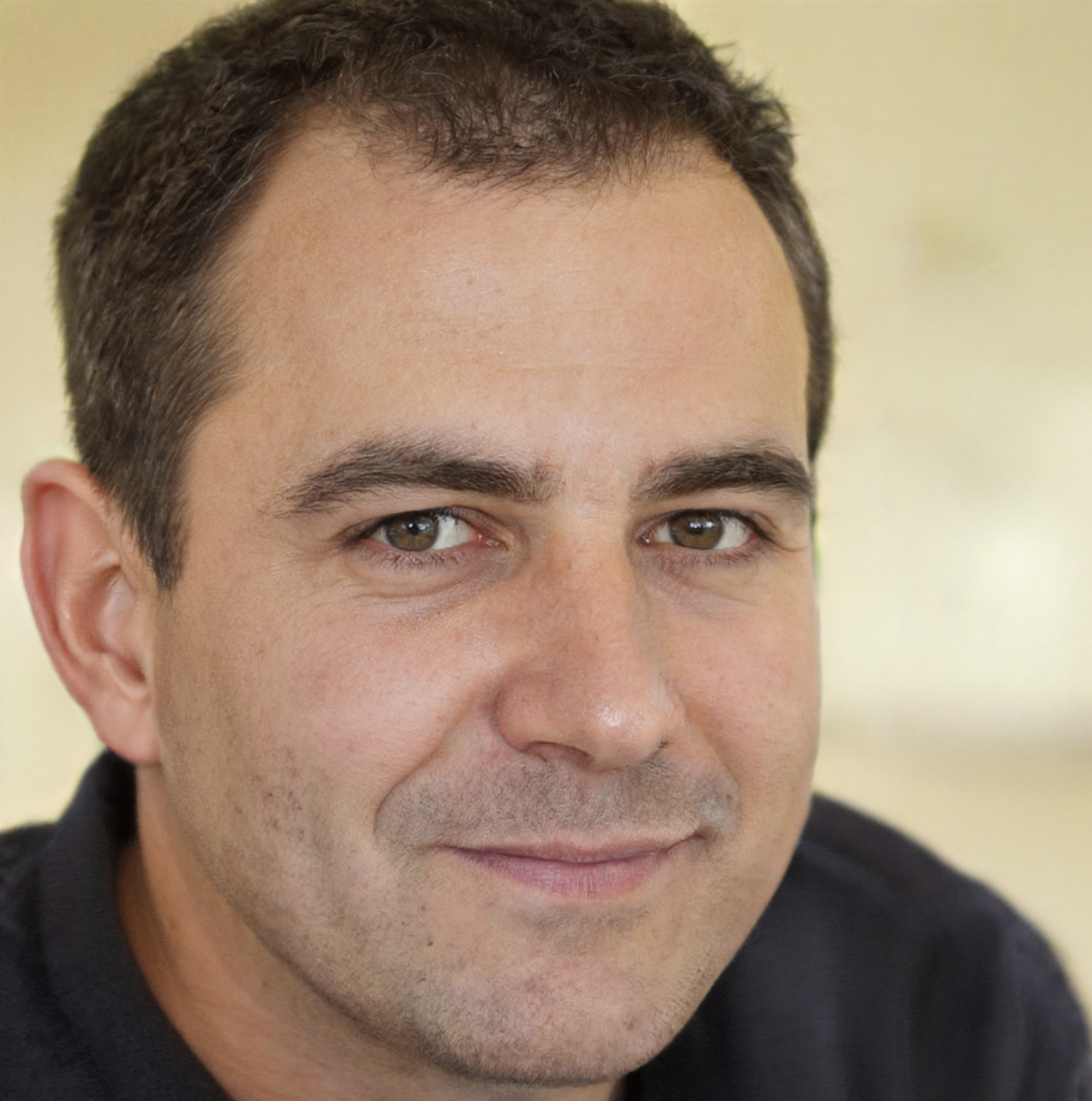
Matteo Caraveta
Author
In the heart of Rome, Matteo Caraveta was born under the influence of the number 9, a symbol of universal love and completion. His path into numerology was illuminated during a life-changing encounter on his 21st birthday, a date that numerologically signifies the beginning of a new cycle, under the mystical skies of Sedona, Arizona. This experience, marked by the convergence of powerful numerical energies, reshaped his destiny.
Matteo's numerology practice is enriched with the vibrational essence of numbers, particularly the harmonious number 2, symbolizing balance and partnership, which guides his consultations. His most profound moment came when he used the energy of number 5, the emblem of dynamic change, to navigate a client through a tumultuous career shift, leading them to a path filled with purpose and prosperity.
Now, Matteo Caraveta stands as a beacon of light in the numerical maze, guiding souls with the wisdom of numbers, where every consultation is a step towards understanding the universe's grand design. His journey embodies the transformative power of numerology, making Matteo not just a numerologist, but a navigator of life's numerical currents.

Evelyn Adams
Reviewer
Evelyn Adams is a dedicated writer at Kansas Press, with a passion for exploring the mystical and uncovering hidden meanings.
Evelyn brings a wealth of knowledge and expertise to her insightful articles. Her work reflects a commitment to providing accurate information, thoughtful analyses, and engaging narratives that empower readers to delve into the mysteries of the universe.
Through her contributions, Evelyn aims to inspire curiosity, spark imagination, and foster a deeper understanding of the supernatural world.
Latest Articles
Popular Articles
